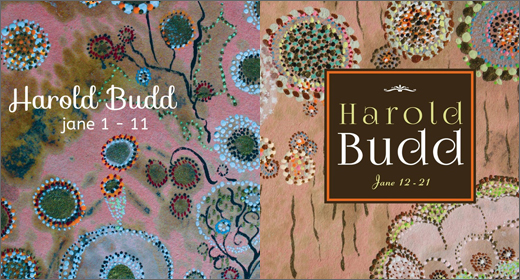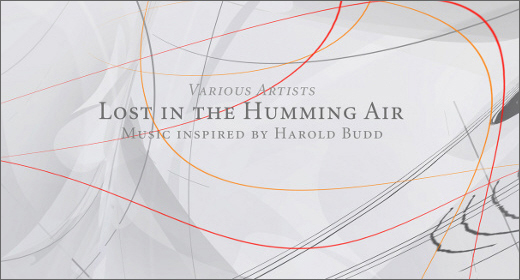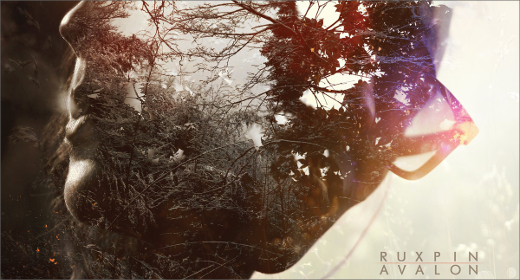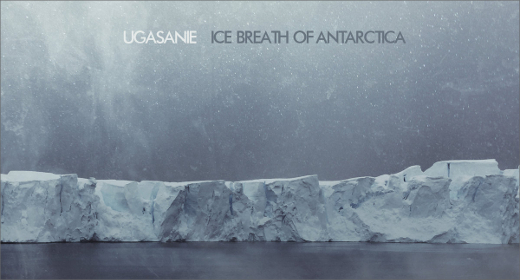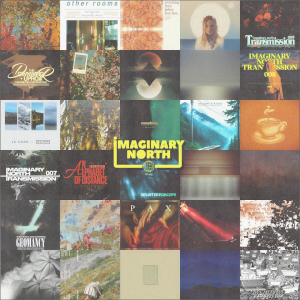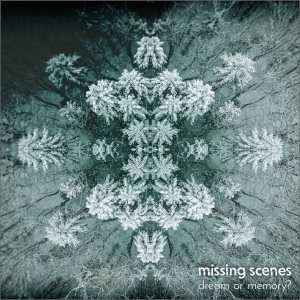 (04.28.05) Samadhisound’s fourth release (issued in late 2004) appears in the form of Harold Budd’s last: Avalon Sutra, a double CD release featuring fourteen of Budd’s classically pearlescent compositions on one disc, and a sixty-nine minute, one track remix of “As Long As I Can Hold My Breath” by Akira Rabelais with Budd and David Sylvian on the other. These are the parting works of an artist whose musical career has spanned three decades, and Budd now feels that he has fully expressed everything he wanted to through his music and wishes to retire. There could be no more fitting epitaph to Budd’s work than Avalon Sutra, which presents to the listener a suite of often brief, classically ambient pieces of astounding beauty and delicacy.
(04.28.05) Samadhisound’s fourth release (issued in late 2004) appears in the form of Harold Budd’s last: Avalon Sutra, a double CD release featuring fourteen of Budd’s classically pearlescent compositions on one disc, and a sixty-nine minute, one track remix of “As Long As I Can Hold My Breath” by Akira Rabelais with Budd and David Sylvian on the other. These are the parting works of an artist whose musical career has spanned three decades, and Budd now feels that he has fully expressed everything he wanted to through his music and wishes to retire. There could be no more fitting epitaph to Budd’s work than Avalon Sutra, which presents to the listener a suite of often brief, classically ambient pieces of astounding beauty and delicacy.
Each piece has been intricately composed and performed on the piano with additional soprano saxophone, bass flute and on a number of pieces, a string quartet or the warm, hazy synthesizer and Rhodes accents that are common in Budd’s work. That’s almost as much as is constructive to say about them, in fact. Avalon Sutra is an almost emotionally neutral work; the experience and mastery that inform this album allow the pieces to transcend any immediately obvious emotional leanings leaving it entirely up to the listener to interpret, something of a rarity in music these days. Retrospective or introspective without becoming maudlin, they neatly avoid falling into unflatteringly rigid definitions such as ‘autumnal’ or ‘melancholy,’ indeed there is very little material here that can be categorized as ‘autumnal;’ such is the textural or emotional warmth that pervades each piece. Even the titles of the tracks reflect a sense of place rather than mind.
There’s a stately regality to Avalon Sutra that befits the idyllic paradise of its title. Leisurely walks through the headily fragranced grounds of stately homes or public gardens in full bloom during high summer, surrounded by the buzz of insect life, birdsong, softly running water, sunshine reflected off dappled lily-ponds (“Arabesque 1,” “Little Heart,” “A Walk In The Park With Nancy”); shafts of light illuminating the glittering swirls of dust in an amber sunset warmed living room on a spring afternoon (“Chrysalis Nu,” “Rue Casmir Delavigne”); a hurried retreat into the nearest available shelter to escape an unexpected April shower (“L’Enfant Perdu”); the memories and feelings these pieces evoke will likely be as personal to the listener as they are to Budd.
Experiencing the fourteen movements on Avalon Sutra in sequence and in one uninterrupted sitting is key to experiencing the full impact the album can have. As noted earlier, many of the pieces are strikingly brief, but taken together, the impressionistic composition of the pieces has a cumulative, almost compounding effect that culminates in the heartbreaking, genuinely bittersweet goodbye that is the closing “As Long As I Can Hold My Breath.” “Little Heart,” strongly reminiscent of “Chet” on an earlier album Luxa, sets itself apart from the other pieces, both by nature and by design. Resting quietly at the very center of Avalon Sutra, it is as extended mantra of delicately entrancing wind-chimes, distant piano solo and a bright, looped pad underpinned by a soft, deep bed of bass drones. If the listener has not already been relaxed, immersed and fully transported by the textures and atmospheres of Avalon Sutra by this point, they certainly will be once “Little Heart” comes to an end.
The second disc in this set contains the epic, 69 minute “As Long As I Can Hold My Breath (By Night),” remixed by Akira Rabelais with additional production by David Sylvian and Harold Budd. It is not, as the title suggests, a simple remix of “As Long As I Can Hold My Breath” however; it is a re-distillation of many aspects of Avalon Sutra as a whole, and most notably uses the looped strings section from “Chrysalis Nu” as it’s central and unchanging melodic motif with additional strings seemingly based on those found in “Three Faces West.” This is a piece that has been composed in a style similar to those famous ambient experiments in atmospheric immersion such as “Thursday Afternoon” by Brian Eno. Indeed it is a strikingly beautiful, restful piece, but actually acquires a somewhat mournful tone that is not really present in Budd’s original works. As arresting as this piece is, it’s evolution over the course of its full running time is almost undetectable and is unlikely to engage most listeners to the extent that they will sit through its entire run. This is, perhaps, not the point however. Eno’s epic pieces are, on the whole, meant to be played at a low volume such that they merge with the ambient sounds from the environment in which the piece is played, and it is in this way that this piece works best.
All of the above neither adequately describes nor does justice to the work Budd has lovingly crafted here, therefore it is highly recommended that you visit the luminescent paradise that is Avalon Sutra.
Avalon Sutra is out now on Samadhisound.










